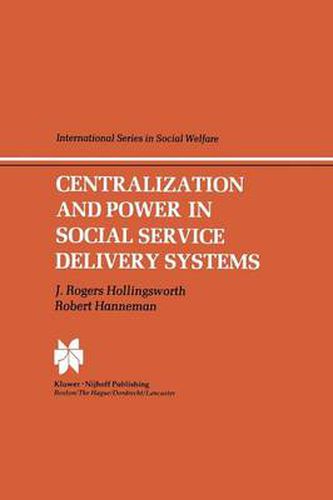Readings Newsletter
Become a Readings Member to make your shopping experience even easier.
Sign in or sign up for free!
You’re not far away from qualifying for FREE standard shipping within Australia
You’ve qualified for FREE standard shipping within Australia
The cart is loading…






This title is printed to order. This book may have been self-published. If so, we cannot guarantee the quality of the content. In the main most books will have gone through the editing process however some may not. We therefore suggest that you be aware of this before ordering this book. If in doubt check either the author or publisher’s details as we are unable to accept any returns unless they are faulty. Please contact us if you have any questions.
In the United States and other western nations, debates rage over whether welfare, medical care, educational programs, and many other aspects of public policy should be the responsibility of central govern ment, local government, or the private sector. In most nations, the issues of regional autonomy and decentralization are constantly in the news, with intensity varying from mild debate to open warfare. Less visibly, battles are continuously fought in the political arena over what groups should have the right to make decisions concerning the allocation of soci ety’s resources. In response to these concerns, social scientists have focused consider able attention on the causes and consequences of centralization and de centralization in political, economic, and social organizations. Their analyses of centralization have been varied, ranging from systems that are quite small (e. g. , the family, the firm, and the community) to those sys tems that are very large (e . g. , the welfare state). While centralization is a concept of major concern in most of the social science disciplines, each discipline has tended to focus on centralization with a different set of interests. Economists have been very much concerned with the causes and the consequences of the concentration of economic resources. Polit ical scientists have long sought to understand the origins and conse quences of dictatorship and democracy. Sociologists have focused on inequalities in the distribution of power.
$9.00 standard shipping within Australia
FREE standard shipping within Australia for orders over $100.00
Express & International shipping calculated at checkout
This title is printed to order. This book may have been self-published. If so, we cannot guarantee the quality of the content. In the main most books will have gone through the editing process however some may not. We therefore suggest that you be aware of this before ordering this book. If in doubt check either the author or publisher’s details as we are unable to accept any returns unless they are faulty. Please contact us if you have any questions.
In the United States and other western nations, debates rage over whether welfare, medical care, educational programs, and many other aspects of public policy should be the responsibility of central govern ment, local government, or the private sector. In most nations, the issues of regional autonomy and decentralization are constantly in the news, with intensity varying from mild debate to open warfare. Less visibly, battles are continuously fought in the political arena over what groups should have the right to make decisions concerning the allocation of soci ety’s resources. In response to these concerns, social scientists have focused consider able attention on the causes and consequences of centralization and de centralization in political, economic, and social organizations. Their analyses of centralization have been varied, ranging from systems that are quite small (e. g. , the family, the firm, and the community) to those sys tems that are very large (e . g. , the welfare state). While centralization is a concept of major concern in most of the social science disciplines, each discipline has tended to focus on centralization with a different set of interests. Economists have been very much concerned with the causes and the consequences of the concentration of economic resources. Polit ical scientists have long sought to understand the origins and conse quences of dictatorship and democracy. Sociologists have focused on inequalities in the distribution of power.